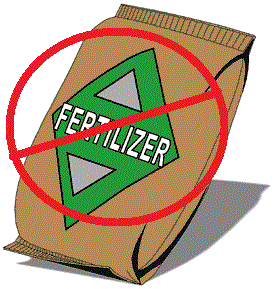
by Danielle Nierenberg and Amanda Stone on July 15, 2010
The following op-ed appeared in Addis Fortune, Ethiopia's largest English daily newspaper
Most of the news one hears from Ethiopia is about millions of people facing malnutrition and starvation. Although one wishes that the answer could be as simple as supplying food aid or high-tech quick fixes, like chemical inputs to increase production, the financial and environmental costs of these solutions are often more than one can afford.
What one does not often hear about are the local organisations that attempt to unite farmers to find long-term solutions to Ethiopia's food security problems together, solutions that will enable small-scale farmers to become self-sufficient and the country to wean itself off of international food aid altogether.
Sustainable solutions require more than just additional funding and technology.
Most often, there is no "one size fits all" solution, the Institute for Sustainable Development (ISD) in Addis Abeba discovered. Instead it is the sharing of traditional knowledge, practices, and innovations that leads to sustainable solutions.
"We need policies that enable researchers and farmers to have the time, places, and support to work together as genuine partners," said Sue Edwards, an advisory group member and director of the ISD, in an interview for the Worldwatch Institute's Nourishing the Planet Project, on October 23, 2009.
Edwards established the ISD in 1996 with her husband, Tewolde Berhan Gebre Egziabher (PhD), who is now the head of the Ethiopian Environmental Authority (EPA).
In one project of the ISD, farmers and local agriculture experts in four communities were trained to make compost in pits using traditional processes and apply it to their fields during crop planting.
Within two years farmers found that natural compost increased crop yields as much as chemical fertilisers. Over the following years soil fertility and crop yields improved so much that farmers were able to stop purchasing chemical inputs altogether. Some farmers equated the use of chemical fertilisers with a system of bribing the soil, which they recognised as unsustainable.
To share this knowledge across Tigray Regional State, the northernmost region of Ethiopia, the ISD utilised a training strategy whereby farmers were responsible for training 10 or more of their neighbours, while local agriculture experts recorded and reported the impacts of compost use. This shared approach rapidly multiplied the number of farmers making and using compost and increased overall crop production throughout the region.
Across the globe it is widely recognised that the use of chemical fertilisers and pesticides produces high crop yields. However, these inputs can often bring problems for farmers because they are expensive, often pollute water supplies, retard plant growth, and destroy biodiversity by killing beneficial insects and wildlife.
One farmer, Teklu Beza of Mai Berazio, Tigray Regional State, experienced these negative side effects. Using a pesticide called 2-4-D to control weeds on half of his small field of teff, he found that the growth of the crops where 2-4-D was applied, was slowed by two weeks when compared to the other half.
This side effect, in addition to the death of honeybees from the pesticide, led other farmers to shy away from buying pesticides and shift to using and improving their own traditional pest and disease control methods.
By developing their own practices, farmers not only avoided monetary costs and environmental degradation but also improved their confidence, livelihoods and local ecosystems. Also, by sharing this knowledge with their local agriculture experts, most farming communities in the area have reduced the use of pesticides and are collaborating with local authorities to ban their use.
A series of workshops organised by Spanish NGO Centro de Iniciativas para la Cooperación/Batá, Prolinnova, and the National Farmers Union of Mozambique (UNAC) in Maputo, Mozambique, allowed farmers to share their experiences and innovations and learn what is working in their local communities.
At one session, Energindo Paulo from Nicassa Province explained how to make natural, nontoxic pesticides. His ingredients, including leaves from the neem tree, were displayed on the floor as he discussed methods of pest control. When Energindo finished his presentation, the group of 50 farmers asked questions about how to apply the pesticide and how long they should wait after application to eat the produce.
These workshops help farmers value and invest in their own local knowledge.
"Good agriculture requires knowledge of how people can cultivate food and other natural products we need in a way that is ecologically and culturally suitable for the places we live," said Edwards.
The idea that technology is always the answer means that only those who can afford to buy the quickfix products will avoid hunger. Those who cannot buy them will have their choices and opportunities for healthy and affordable food reduced or, more likely, eliminated.
Growing food based on the shared traditional knowledge of local people is one way to bring healthy and nourishing food within reach of everyone.
Danielle Nierenberg is co-project director of the Worldwatch Institute's Nourishing the Planet Project. Amanda Stone is a communication intern at the Worldwatch Institute.
No comments:
Post a Comment